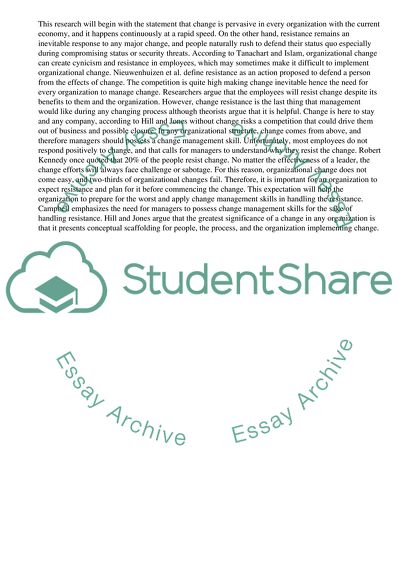Cite this document
(“Resistance to Change phenomenon as a positive force for organisations Essay - 1”, n.d.)
Resistance to Change phenomenon as a positive force for organisations Essay - 1. Retrieved from https://studentshare.org/management/1671601-examine-the-resistance-to-change-phenomenon-as-a-positive-force-for-organisations
Resistance to Change phenomenon as a positive force for organisations Essay - 1. Retrieved from https://studentshare.org/management/1671601-examine-the-resistance-to-change-phenomenon-as-a-positive-force-for-organisations
(Resistance to Change Phenomenon As a Positive Force for Organisations Essay - 1)
Resistance to Change Phenomenon As a Positive Force for Organisations Essay - 1. https://studentshare.org/management/1671601-examine-the-resistance-to-change-phenomenon-as-a-positive-force-for-organisations.
Resistance to Change Phenomenon As a Positive Force for Organisations Essay - 1. https://studentshare.org/management/1671601-examine-the-resistance-to-change-phenomenon-as-a-positive-force-for-organisations.
“Resistance to Change Phenomenon As a Positive Force for Organisations Essay - 1”, n.d. https://studentshare.org/management/1671601-examine-the-resistance-to-change-phenomenon-as-a-positive-force-for-organisations.


